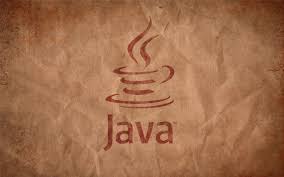
A Java Full Stack Developer builds complete web applications — from designing responsive user interfaces to developing server-side logic and managing databases. They work with Java (Spring Boot, Hibernate) for backend development and use HTML, CSS, JavaScript, Angular or React for the frontend. They also handle database operations, RESTful APIs, and often use tools like Git, Maven, Jenkins, and Docker for version control and deployment.
🔹 Key Skills:
Frontend: HTML, CSS, JavaScript, React/Angular
Backend: Java, Spring Boot, REST APIs
Database: MySQL, PostgreSQL, MongoDB
Tools: Git, Maven, Jenkins, Docker
A Java Full Stack Developer is valuable for their ability to manage the entire software development lifecycle and deliver end-to-end solutions
Java Full Stack Developer
Java Basics:
- History of Java
- Comments
- Data types
- Variables
- Constants
- Scope and Lifetime of variables
- Operators
- Type conversion and casting
- Enumerated types
- Math functions
- Numeric functions
- Wrapper classes
- Control flow‐ block scope
- conditional statementsloops
- break and continue statements
- Character arrays
Numeric Data type:
- Math lib
- Numeric example programs
- Character Data type:
- Character data example programs
- Character wrapper class methods
String Data:
- String built-in methods
- Stringbuilder class
- Stringbuffer class
- String array
- Multidimensional Array
Java Class Introduction:
- Class object, and its methods
- Constructors,
- Access control,
- This reference,
- Overloading constructors,
- Recursion, garbage collection
Inheritance
- Inheritance types,
- Super keyword,
- Final classes and methods
Polymorphism :
- Method overloading
- Method overriding,
- Abstract classes and methods.
Interfaces:
- Interfaces Vs Abstract classes,
- Defining an interface,
- Implement interfaces,
- Extending interface,
- Inner class.
Packages:
- Defining,creating and accessing a package,
- Importing packages.
- Exception handling‐
- Benefits of exception handling,
- The classification of exceptions
- Exception hierarchy,
- checked exceptions and
- Unchecked exceptions, usage of try, catch, throw, throws and finally, creating own exception
- Multithreading :
- Differences between multiple processes and multiple threads,
- Thread life cycle,
- Creating threads,
- Interrupting threads,
- Thread priorities,
- Synchronizing threads
Collection Framework in Java :
- Introduction to java collections,
- Overview of java collection framework,
- Commonly used collection
- Classes‐
- Array List,
- Vector
- Hash table,
- Stack,
- Lambda Expressions.
Files:
- Streams‐
- Byte streams,
- Character streams,
- Text input/output,
- Binary input/output,
- File management using File class.
Connecting to Database :
- JDBC Type 1 to 4 drivers,
- Connecting to a database,
- Querying a database and processing the results,
- Updating data with JDBC,
- Data Access Object (DAO).
JSP:
- Life cycle of jsp
- Jsp Scripting Elements
- Jsp requet
- Jsp response
- Jsp page
Core Spring Framework:
- Introduction to Spring and its ecosystem.
- Inversion of Control (IoC) and Dependency Injection (DI).
- Spring containers (e.g., BeanFactory, ApplicationContext).
- Bean definition and configuration (XML, annotations, Java-based).
- Bean scopes and lifecycle.
- Aspect-Oriented Programming (AOP).
Spring Boot:
- Introduction to Spring Boot and its advantages.
- Spring Boot auto-configuration and starters
- Building applications with Spring Boot.
- Spring Boot Actuator for monitoring and management.
- Testing in Spring Boot.
Spring MVC:
- Building web applications with Spring MVC.
- Controllers, request mapping, and handling user input.
- View resolvers and templating engines.
- Form handling and validation.
- RESTful web services with Spring MVC.
Data Access:
- Spring Data JPA for database interaction.
- Repositories and data access methods.
- Transaction management.
- Working with databases (e.g., MySQL)
Looking for Reading Material? Click Here
